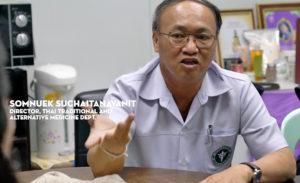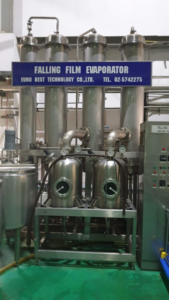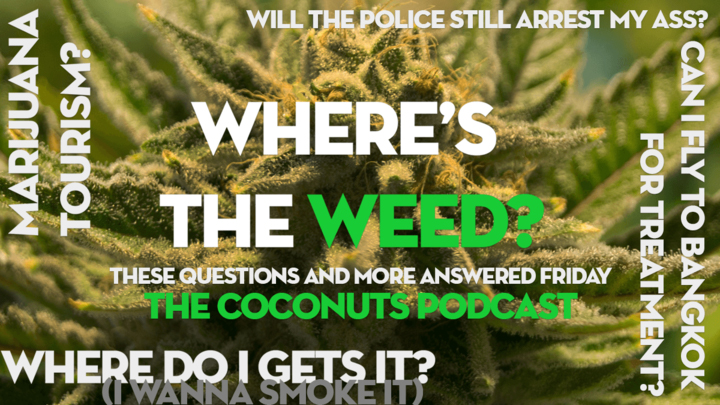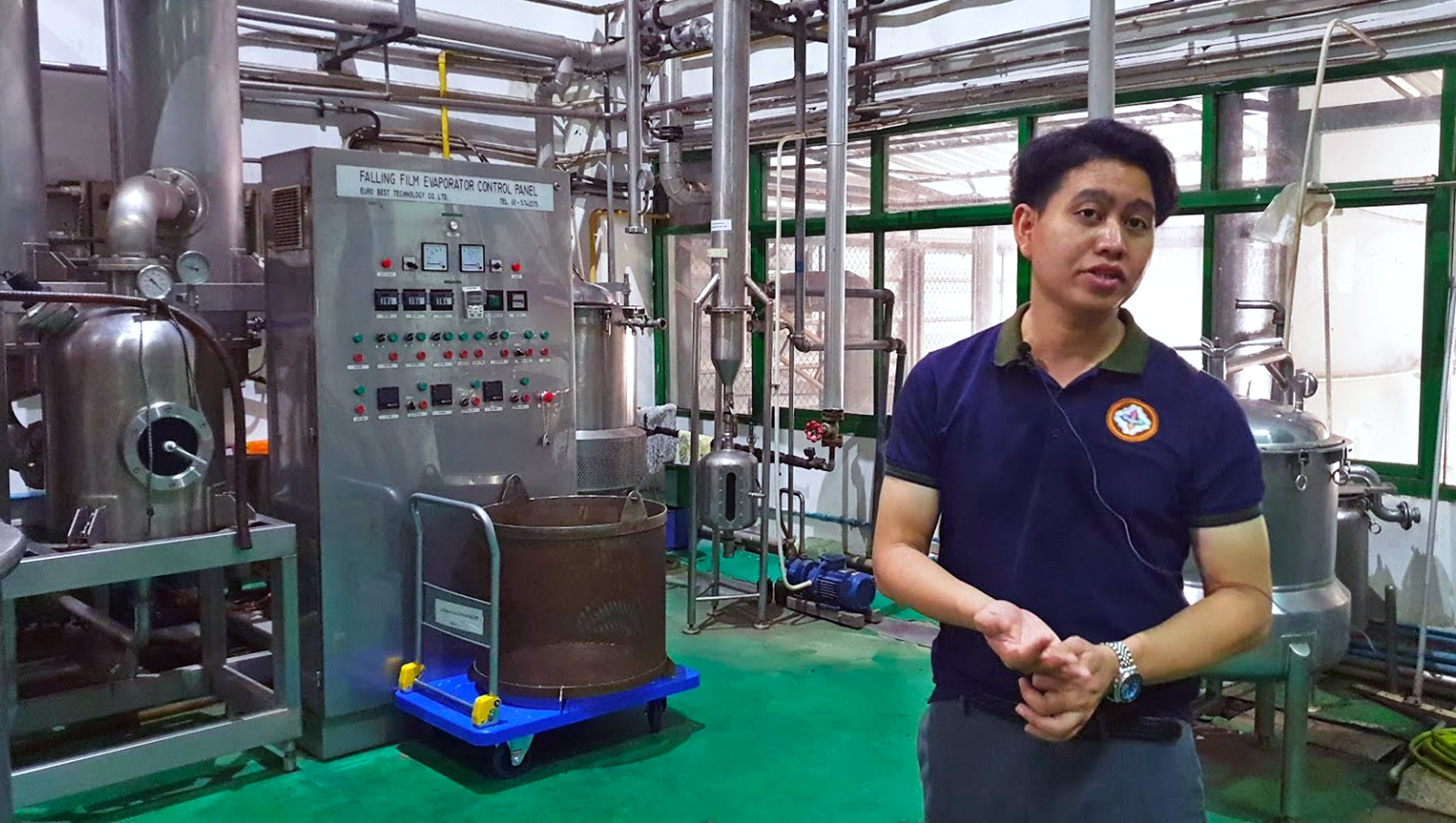Weed is weed, right? Believers in the power of the herb who think there are no health risks associated with street marijuana would be wrong, according to those formulating government-approved cannabis treatments at a research center for Thai traditional medicine.
The man with that message was none other than Somnuek Suchaitanavanit of the Thai Traditional and Alternative Medicine Department, who yesterday said he’d just received his first 20 kilograms of seized weed from narcotics officers. That was a down payment on the 1 metric ton he plans on receiving at his facility on the distant northern outskirts of metropolitan Bangkok to put to use in his lab, which historically was used to develop various traditional herbal remedies.

“Testing revealed that the seized marijuana … contains three types of contaminants,” Somneuk said last week. It has three times the amount of cadmium than clean cannabis, three times the fungicides and six times the paraquat, a toxic pesticide banned in many countries.
That means an involved process to remove all the contaminants, an important step for producing medically viable products for treating the infirm.
“Underground marijuana is often laced with chemicals and contains alpha toxins that can give you cancer,” Somnuek said during a recent interview in his offices at Thailand Science Park. That’s where the department houses labs used to research traditional medicine treatments – think other herbs and powders – that Somnuek hopes can be a “model facility” for medical marjuana research. Seated at a table alongside vials containing “experimental” products, the bureaucrat wore a beige, 100%-hemp vest and explained where things are at since medical marijuana was legalized late last year.
Find all episodes of The Coconuts Podcast
Earlier this year, the Food and Drug Administration approved 16 cannabis treatments for traditional applications. Somnuek’s department has been tasked with what he calls “product development” of two cannabis-infused traditional medicines and three ready-to-use recipes that licensed medical practitioners can mix themselves before prescribing.
Somnuek plans to use two types of marijuana for the recipes. The seized cannabis is a stop gap while cannabis to be planted in their biotech lab later this month grows. It can take up to six months to be ready for harvest.
For now, their supercritical fluid extraction unit comes into play. Whether the machine can successfully separate the good from the bad in practice will be determined once they begin processing it.
“If we use contaminated cannabis [to develop the medicinal recipes,] instead of curing cancer it may end up giving it to you,” he said.

Take a look at the research lab inside Thailand Science Park
Extraction
Unlike other methods that use alcohol, propane or other chemical separation techniques to dissolve the cannabinoids into a solvent, the supercritical machine uses carbon dioxide, which Somneuk says make for a cleaner, purer process.
“It makes the process really safe and it doesn’t use heat so it can retain all of the plant’s nutrients,” he said, adding that it also with minimize the lab’s carbon footprint.
Somneuk estimates that the machine can extract about three kilograms of refined cannabis at a time. At the end of the roughly two-hour process, about 10% of that product will turn into oil – which means about 300 grams of cannabis oil can be extracted each time.
It will be trial and error, but he’s happy to experiment.

“It’s our job to try things and repeat them over and over again, hundreds and hundreds of times in order to establish theories. This is the purpose of this research facility,” he said.
But that doesn’t mean the department isn’t looking for opportunities to get creative. As well as collaborating with other departments on research, they are looking for ways to use other parts of the plant not utilized for medical purposes.
“After the process, we are left with about 60% of the [marijuana] plant that we don’t use. We don’t want to just discard it, so we’ve been thinking of different ways to give it value again,” he said, pointing to his hemp vest as an example.
He wishes the research would move more quickly if marijuana was fully declassified as a narcotic, which could then reach its full commercial and scientific potential.
Regardless, Somneuk said he is “having fun,” with his work.

Check out The Coconuts Podcast for a wide-ranging discussion of medical cannabis in Thailand.
Related stories:
Thai hospital readies cannabis oil for August distribution
CBD, THC oils unveiled by Thai GPO
Thai medical weed ads on the way
Thailand’s first medical-grade bud is just growing like a weed (Video)
Won’t find weed on menu of Bangkok’s first cannabis-themed cafe
Thai doctors begin training to prescribe marijuana
Got Stress? Legalize your weed today for these medical conditions
Thailand to start testing medical marijuana on patients
Thai FDA discusses details of medical marijuana regulations now that law has come into effect


